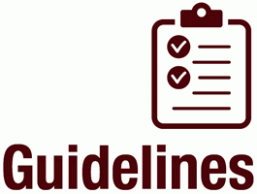Guidelines for supporting and expanding the values of Education Charter International

Introduction:
Education Charter International (ECI) encourages everyone to contribute to the goals of the Education Charter Initiative. Your active participation and support are needed. In this connection, ECI is in the process of scaling-up the Initiative worldwide by promoting decentralized activity and the empowerment of individuals, communities and organizations. As ECI undertakes this new strategy, it will continue to promote the Education Charter through various formal international processes and a limited number of programs. However, this new strategy is necessary because the Education Charter International secretariat is only able to organize and direct a very small portion of the wide range of actions needed to implement the Education Charter vision. The Action Guidelines presented below are a resource designed to help people conduct Education Charter related activities in ways that are in harmony with the values and principles of the Education Charter. The purpose of the Action Guidelines is also to ensure a certain measure of consistency in how decentralized actions on behalf of the Education Charter are carried out. Think of the Guidelines as a kind of virtual coordinating mechanism for the Education Charter Initiative as it prepares for a rapid decentralized expansion that could involve the actions of many millions of people worldwide. The Action Guidelines are not fixed and final. The Education Charter International Council will periodically review them in the light of lessons learned from efforts to apply the Education Charter in different regions and sectors. The Council welcomes any comments and suggestions you may have regarding them. The Action Guidelines
1. Start with the Education Charter. Let the Education Charter be your basic guide when you are planning and undertaking activities to make the Education Charter vision a reality.
2. Be a Living Example. Strive to be a living example of the spirit of the Education Charter in your day-to-day life – at home, in the workplace, and in your community.
3. Empower Yourself. Act boldly, and trust that you can make a difference as an individual and that your activities will catalyze the efforts of many others.
4. Cooperate, Cooperate. Create the power to affect change by building partnerships and collaborating with others, and seek to win/win solutions.
5. Empower Others. Share power by being inclusive and providing others with opportunities to strengthen their capacities for problem-solving, decision-making, and leadership, unleashing human creativity.
6. Promote Respect and Understanding. Endeavour to build relationships of mutual respect and trust among individuals and groups from diverse cultures and communities, and resolve differences through dialogue in a way that produces learning and growth.
7. Facilitate Self-Organization. Facilitate the spread of initiatives inspired by the Education Charter without trying to control them, counting on the capacity of human groups with a clear ethical purpose to self-organize and achieve positive outcomes.
8. Focus on Root Causes. Focus thought and action on the root causes of the major problems and challenges facing humanity, and do not let the pressures of existing unsustainable systems and practices deter you from the action.
9. Be Committed Yet Flexible. Be unwavering in your commitment to fundamental principles and ensure that the means adopted to achieve your goals are consistent with Education Charter values, but always be flexible and innovative in selecting means and methods as circumstances change.
10. Be Resourceful. Do not let your thinking and acting be restricted by dependence on money; use your imagination and be resourceful in making things happen.
11. Use Technology Wisely. Be mindful that large numbers of people do not have access to advanced technology, and when constructing technological solutions to problems ensure that they are appropriate.
12. Protect the Integrity of the Charter. When presenting, quoting from, or translating the Education Charter be faithful to the words and spirit of the original text, and link the Charter only with organizations, products and events that are consistent with its values.
Action Guidelines
General Activities of Honorary Ambassador (Country and City)
• Promote Education Charter International
• Promote Universal declaration of Higher Education for the twenty-first century of UNESCO
• Promote UN Global Compact Ten principles in the area of Human Rights, Labor, and Environment and anti Corruptions.
• Work to initiate the movement of making this world with educated youth
• To serve the community at large regardless of race, gender, language or religion, or economic, cultural or social distinctions, or physical disabilities.
• Contribute to the fulfilment of the mission of CCLP Worldwide
• Develop a broad strategic alliance of partnerships among individuals, educational institutions, organizations, religions, corporations, the media and governments.
General Activities and authorities of Honorary Ambassador (Country)
• Act as delegated authority for national Chapter of his or her region(Region, Country or city)
• Supreme authority or observing authority for National or local Chapter
• Invited to serve as members on national, regional and international Chapter and Secretariat office.
• Invited to act as Authorized Signatory for the region or country for the issue of membership or other City Ambassador appointment and use of International Council seal.
• Recommend to appoint or remove or suspend City ambassador of his or her region.
• Invited to the position of International Governors.
Protocol: The Country Ambassador enjoys the highest authority within the members and city ambassadors of his or her region.



